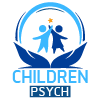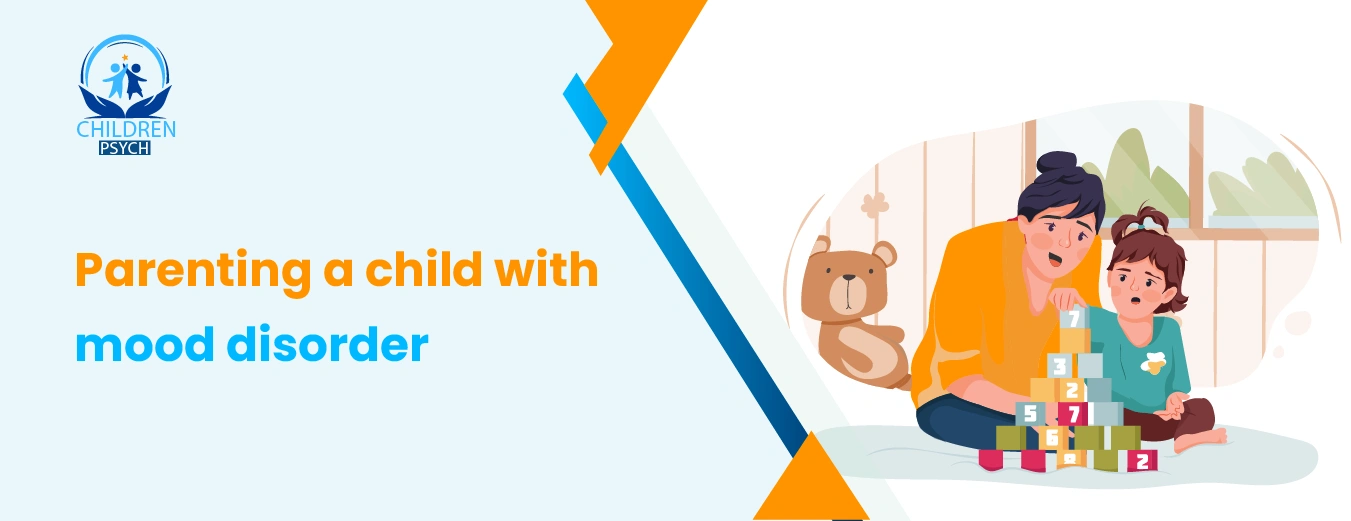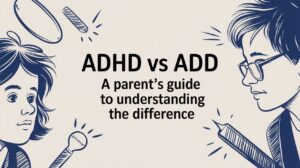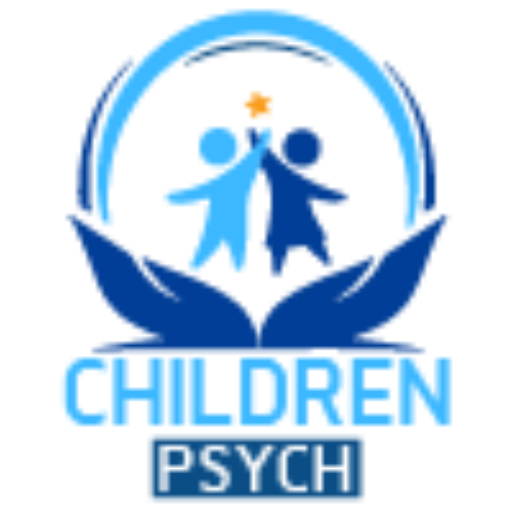Do you think that your child is taking more stress than usual? Does your child most often exhibit mood swings, irritable behavior, and anger outbursts? If you are, then your child is suffering from a mood disorder. Fortunately, mood disorders are treatable. Several therapeutic options can help in managing the symptoms of mood disorders. Moreover, the right and on-time support can help your child recover from mental issues such as mood disorders.
If you want a detailed explanation on ‘’ parenting a child with mood disorder’’ then this article is best for you. After reading this article, you will get a complete idea of the main strategies that parents should employ to assist their child in overcoming the mood disorder.So let’s start!
How to Help a Child with a Mood Disorder?
There are several ways that parents can use to help their child in overcoming the mental issues, including mood disorders such as:
Educate yourself
You can only help your child in those cases when you are completely aware of each aspect of mental illness and its treatment. Therefore, as a parent, your primary responsibility is to learn about that specific mood disorder that your child is suffering from, including the common symptoms, diagnosis, as well as treatment options. Based on your understanding, you can make well-informed decisions to assist your child in overcoming the mood disorder.
Never blame yourself
If your child is battling with any mental illness or any specific type of mood disorder, it’s not your fault, so do not blame yourself in any case. What you need to do is help your child or adolescent get the best treatment options.
Early Recognition of the Signs
Make sure that you recognize the signs of mood disorder in your child early and help them get the ideal professional help.
Connect with your Child
Always remember that it’s your responsibility to make your child feel secure. Set up a friendly and non-judgmental environment so your child feels free to share his or her mental health concerns. Make them feel that they are listened to or heard, so they never feel any hesitation or shyness, and never miss any chance to get the benefit of the best treatment options for their mood disorder.
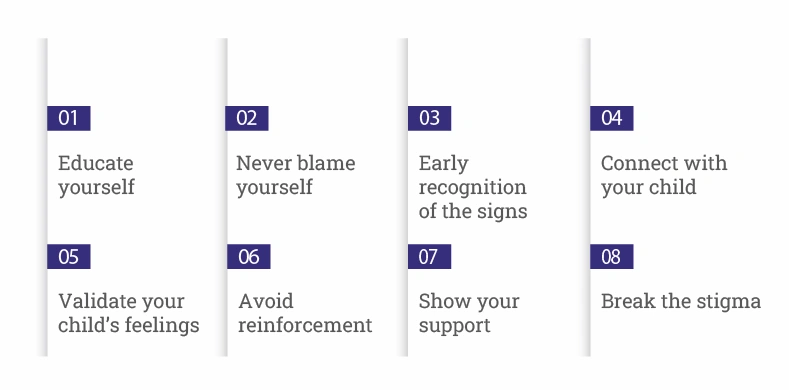
Validate your Child’s Feelings
It’s ok if you don’t understand your child’s emotions. But it does not mean that you start criticizing them. Instead of this, validate their emotions and try to understand their thoughts, emotions without any judgment.
Avoid Reinforcement
Never force your child to do anything or adopt any behavior. Instead of this, guide them on what they should avoid and what they should do to stay protected from each mental issue.
Show Your Support
A parent should always be supportive of their child. Always show your support and encouragement to your child, and teach them to adopt coping strategies for mood disorders.
Break the Stigma
Break the stigma associated with mental health. Normalize a conversation on the topic of mental health. Teach your child that talking about mental health and getting treatment is normal and a sign of bravery. So if ever they feel that they are not normal, then immediately share it with their loved ones so they get the timely treatment.
Limit the Stress Exposure
Make efforts to reduce the stressful environment present around your child. Provide them a secure and growing therapeutic space so they not only heal but also grow.
Give Them Rewards
When your child does anything good or the positive behavior, then give them some rewards to show your support.
Prioritize Self-Care
Teach your child that self-care is very important for both physical and mental well-being. Guide them that focus on the following things if they want to enjoy life with mental stability:
- Diet
- Sleep-wake cycle
- Physical activity
Emotional Vocabulary
Children and teenagers usually have difficulty expressing their emotions. They can’t exactly feel what they are feeling. So you should help them in developing a vocabulary of emotions so they can express their feelings or emotions with ease.
Stress Management Techniques
To reduce the stress and lift the mood, teach your child different stress management techniques, which include:
- Deep breathing
- Meditation
- Mindfulness techniques
Be Patient
Don’t forget that good things take time. Therefore have some patience, support your child to overcome all the challenges associated with mood disorder.
Teach Them Skills
Teach your child multiple social and problem solving skills so they effortlessly navigate all the challenges associated with their mental health and excel in life.
Join Support Groups
You can also join multiple support groups where you can find useful treatment options. Moreover, in support group sessions, you can also learn multiple things from the previous life experiences of others.
Seek Professional Help
If you ever think that you are unable to help your child, then you should seek professional help from experts. Find the best platform where you can find the ideal and comprehensive treatment options for your child and adolescent. Among all platforms, Children Psych should be your first choice if you are concerned with your child’s mental health.
Medications And Therapy For the Treatment of Mood Disorders
Psychiatric Medications
Experts prescribe the medications to manage the symptoms of mood disorder, which include:
- Mood stabilizers
- Antidepressants
- Anti-anxiety medications
Psychotherapy
Psychotherapy is a form of talk therapy that helps children and teens alter their negative thoughts and patterns into positive ones.
Help Your Child Follow the Treatment Plan
Guide your child to strictly follow the treatment plan with consistency. If they feel any difficulty, then also help them in following a routine and get relief from their mood disorder.
What are the Signs that Indicate that Your Child Needs Help?
If your child is showing these signs, then it is an indication that your child is suffering from mood disorder:
- Persistent phase of sadness
- Most often, mood swings
- Loss of interest or pleasure in activities
- Lack of motivation
- Trouble with focus or concentration
- Sense of hopelessness
- Disturbed sleep patterns
- Negative changes in appetite
- Gastrointestinal issues
First, evaluate your child to identify these symptoms. If your child is suffering from these symptoms for two weeks or more, then it means that your child is having a mood disorder. After identification, consult with the professional to find the finest treatment options for them. 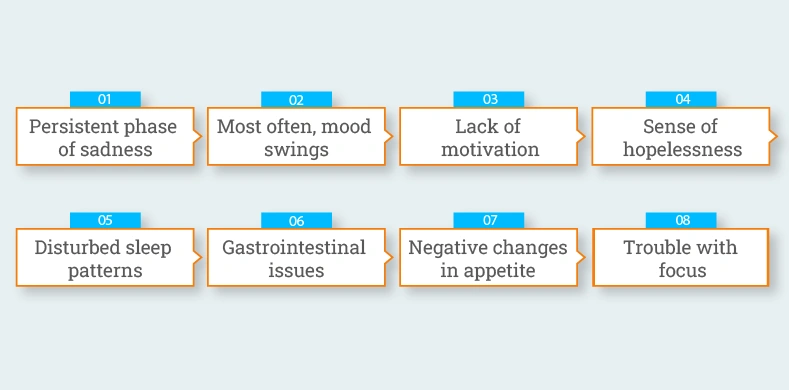
Children Psych: A professional platform committed to Your Child’s Mental Wellness
At Children Psych, we are concerned with empowering the mental health of each child and adolescent. We have a team of expert child psychiatric nurse practitioners who have absolute knowledge regarding each mental illness and its associated treatment options. They first evaluate the mental state of each child and then develop personalized treatment plans that work for them. With our evidence-based based tailored care, you can help your child overcome the mood disorder.So what are you waiting for? Schedule a consultation with our experts and help your child start a journey of mental wellness.
Frequently Asked Questions
What are the parenting ways for a child?
Show support and encouragement.
Be patient
Identify the signs
What are the negative effects on child growth in bipolar patients?
If any of the parents is suffering from any mental issue, then there are higher chances that the child will suffer from mental health issues.
How to stop being a grumpy parent?
Learn the best ways of communication.
Develop a healthy routine.
Eliminate stress with stress management techniques.
What are the symptoms of mood disorders in children?
Prolonged phase of sadness
Anger outbursts
Irritable behavior
Sudden changes in mood
What are child mood swings?
Mood swings are a normal part of childhood. It’s a sudden, frequent, and faster shift in mood. Mood swings are more common at the time of puberty.
